You can use many online resources to check the reliability and consistency of your Antidetect. It is generated or faked by your anti-detect multi-account browser and its high quality should be your top priority. digital fingerprint

What is a browser testing tool?
Testing tools are tools designed to detect bots and/or anomalies in your browser's fingerprint parameters. They work by analyzing your browser configuration and the data it sends to websites, and comparing it to known fingerprints to determine whether your browser is unique.
Such services examine various factors such as data from your device, IP address/location, installed fonts, screen resolution, time and language settings from various sources as well as various hardware traces such as Canvas hash or WebGL hash.
1. Browser Leak
The site offers a variety of tests for browsers and devices, including geolocation tests, battery status, WebGL, etc. It also provides very detailed information about your IP address, ISP, and other details about your browsing environment.
Browserleaks is a popular website that many people visit every month to test the security of their browsers. It has nearly 900,000 visitors per month, according to SimilarWeb.
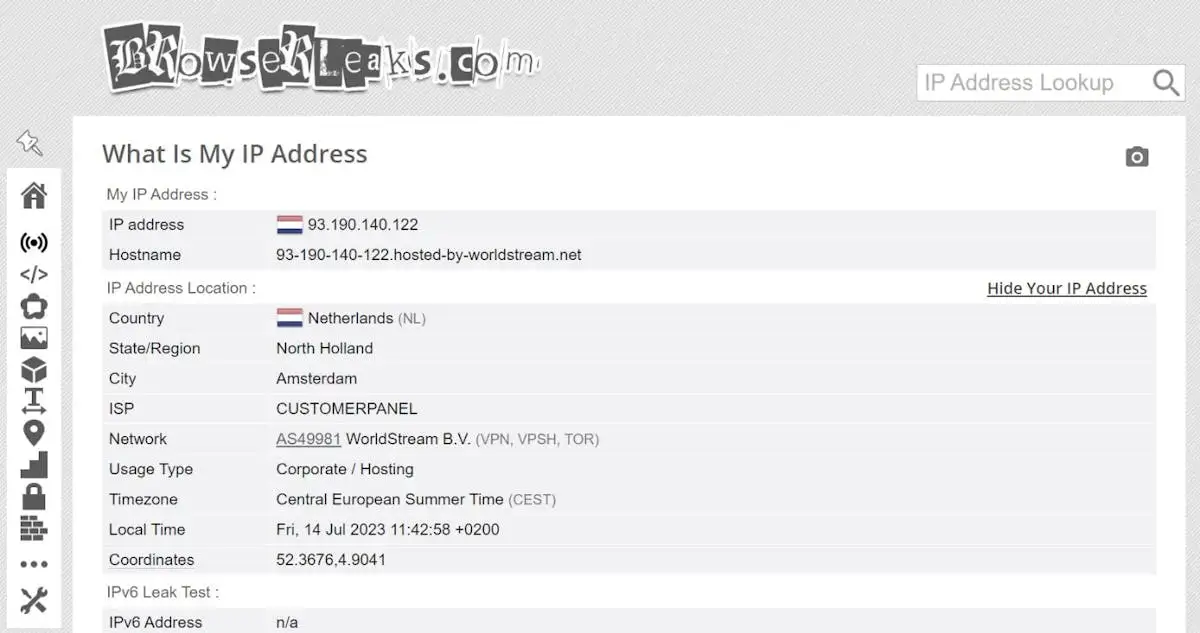
2. Pixel Scanning
The service is quite popular with 45.6k monthly visitors. A shortened version of the report is shown in the screenshot, with more information if needed. Additionally, you can find the IP Check and Frequency Check reports in the top menu.
PixelScan is a convenient tool to quickly check for invalid browser parameters. The tool highlights these parameters in both short and full reports.
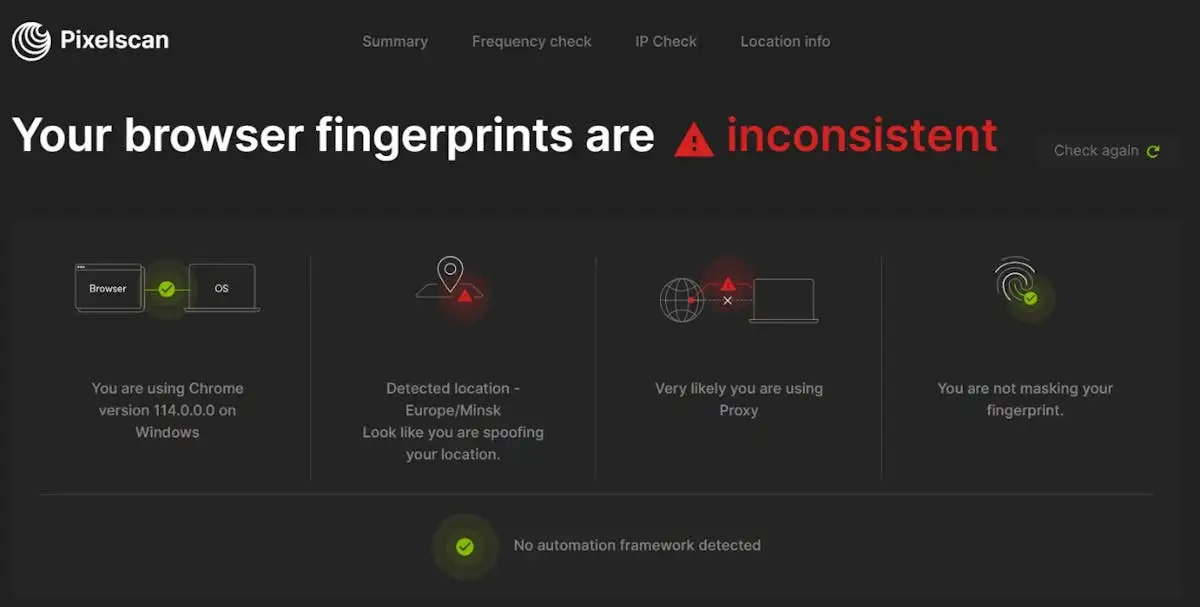
3. Who is who?
Whoer has all the basic and additional features like DNS Leak Test, Port Scanner, Evercookie Test, Social Fingerprinting Detection, etc. Similar to PixelScan, Whoer identifies errors and shows any leaks or conflicting information.
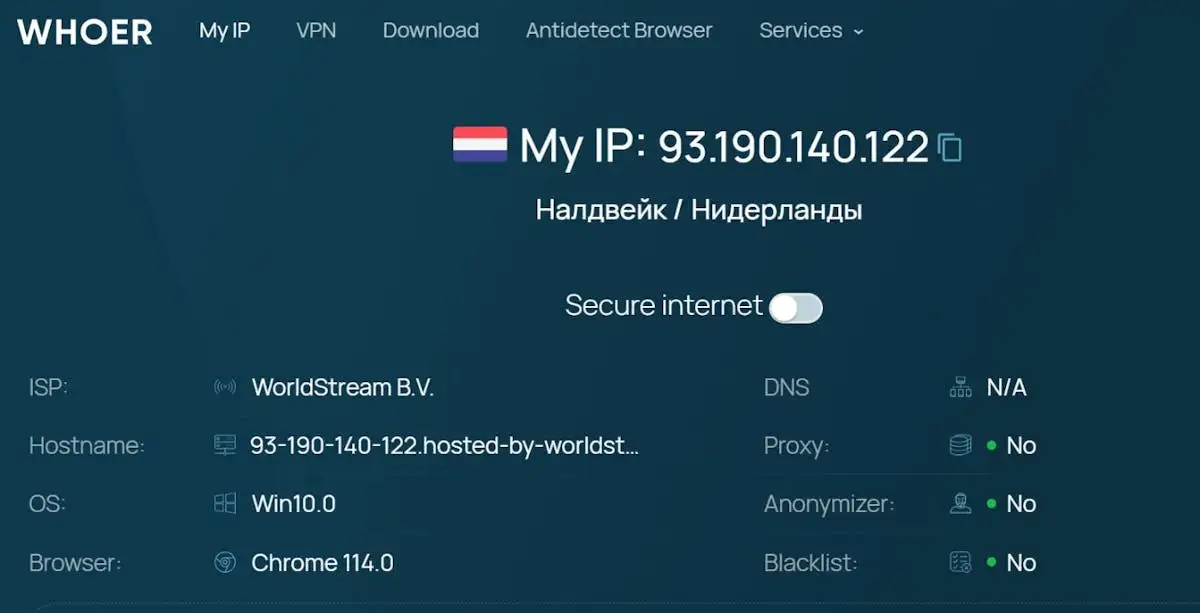
4. f. vision
This tool works similarly to other testing tools but with some slight differences. For example, it can scan for open ports. If the tested parameter appears to be invalid or conflicts with a similar parameter value obtained from another source, the corresponding line will turn red and a message will be displayed.
It is important to note that the simplified test report may differ significantly from the advanced report, so keep this in mind.
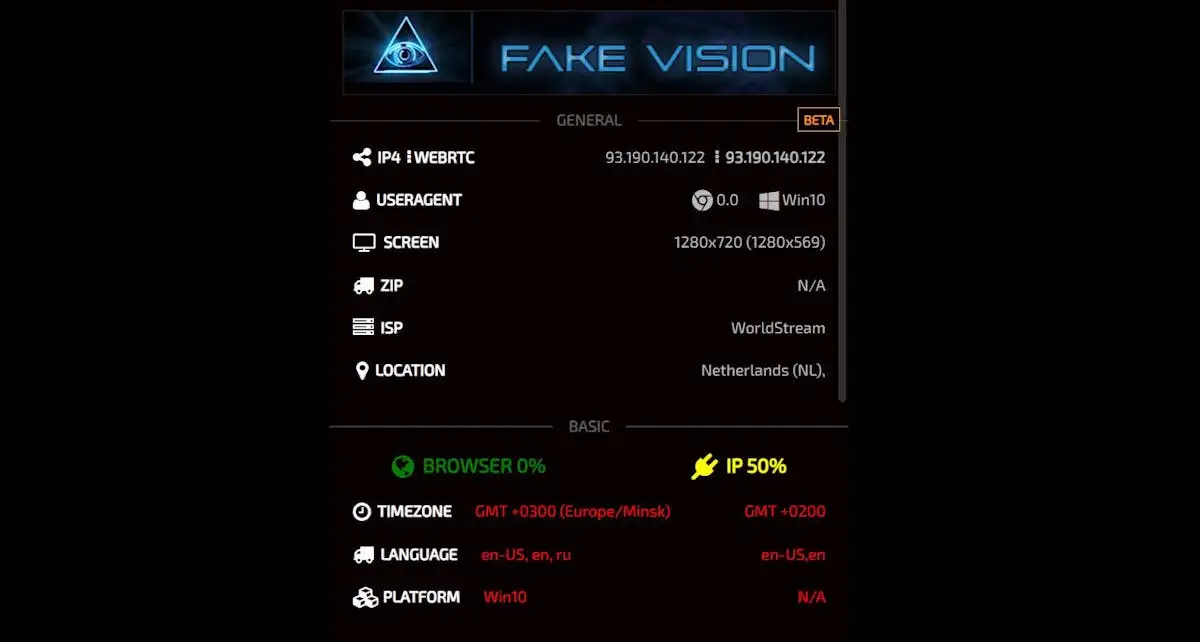
5. AmIUnique
This tool provides a way to check the uniqueness of your browser and device configuration. The report includes 57 available parameters. The service checks your settings and parameters and compares them to nearly 2 million digital fingerprints collected by the AmIUnique team.
The report shows the percentage of users with the same value for each parameter. The service itself is unique, so it's no surprise that it's popular with 161.8k monthly visitors.
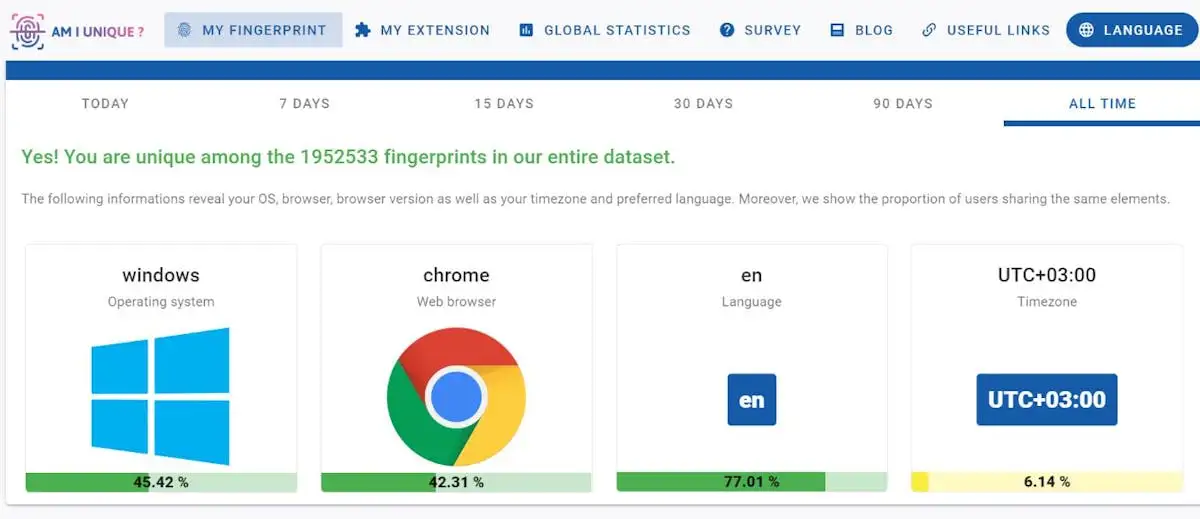
6. Privacy.net
The Privacy.net analyzer is a tool that provides various privacy tests, including all the usual parameters. However, it is not designed to detect and display conflicting values. Therefore, using it as a browser anti-detection testing tool is not very convenient.
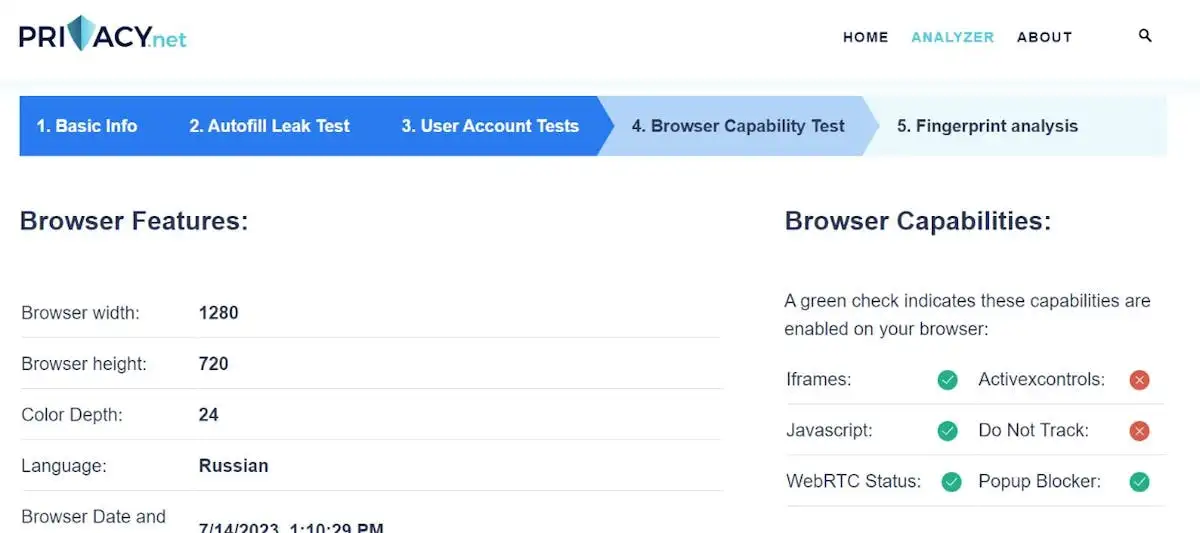
7. Iphey
This service is similar to PixelScan but has fewer parameters to check.
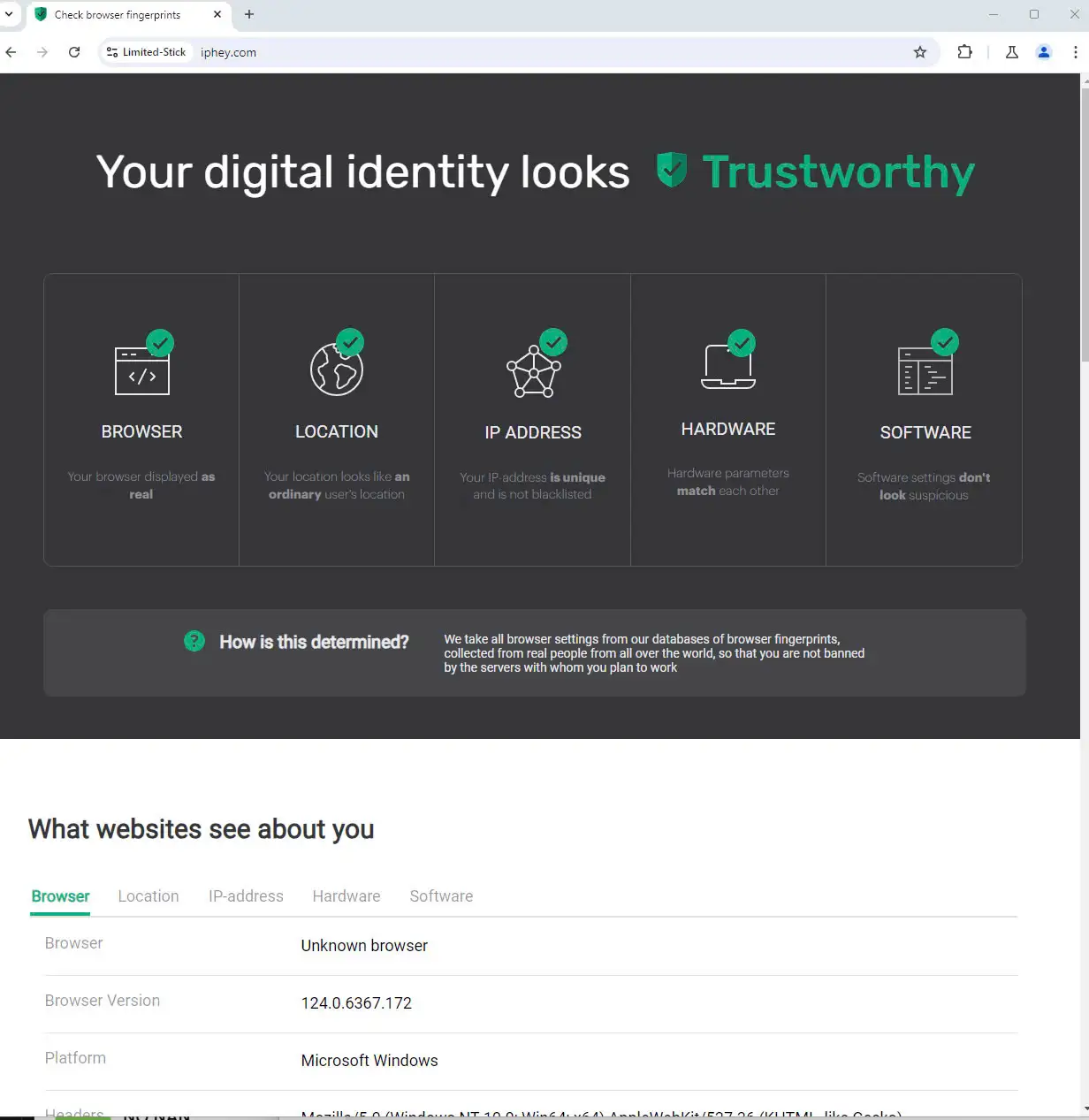
8. Gemlogin- Top antidetect software
Antidetect Browser Software Login Gemlogin stands out for its ability to effectively fake browser traces, helping users avoid detection by online surveillance systems. Gemlogin can create a series of virtual browser environments with completely customizable parameters, from IP addresses, operating systems to hardware factors, helping to simulate many different identities easily. This is especially useful in activities such as multi-account marketing, advertising management, or running MMO campaigns without worrying about being detected by anti-fraud systems.







